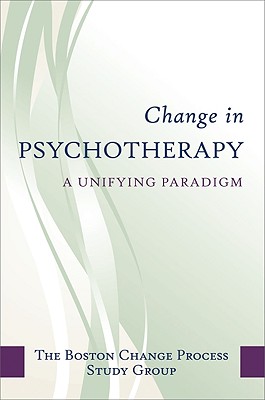
The Boston Process Change Study Group
Since 1994, the Boston Change Process Study Group (BCPSG) has published articles on the most fundamental of therapeutic concepts: change. However, the BCPSG's evolving interests and points of focus have been wide-ranging, if always thematically linked by a connection to change. With Change in Psychotherapy: A Unifying Paradigm, the evolution of the group's thinking and work has been collected into a book for the first time.
The Group's initial areas of research have since been recognized as central to psychotherapeutic thought. For example, the BCPSG has long focused on bringing insights from the study of infancy to bear on thinking about psychoanalytic processes. In its earliest work, the group looked to early development as a source of inspiration and knowledge, and as a possible way to illuminate change processes in psychotherapy. Today, developmental researchers and neuroscientists increasingly locate keys to psychological health and development in the earliest interactions between mother and infant. This book, which consists of significant papers by the BCPSG, traces the group's contributions to psychoanalytic topics of note, including: the location of the implicit, the creation of meaning, the moment-by-moment clinical process, and the subjective experience of the therapist. The book also includes new introductions to selected chapters, which provide background on the original intent and reception of each article. Change in Psychotherapy presents the essential findings from an internationally acclaimed group of analysts in a single volume for the first time. In this, it is a truly groundbreaking work.







